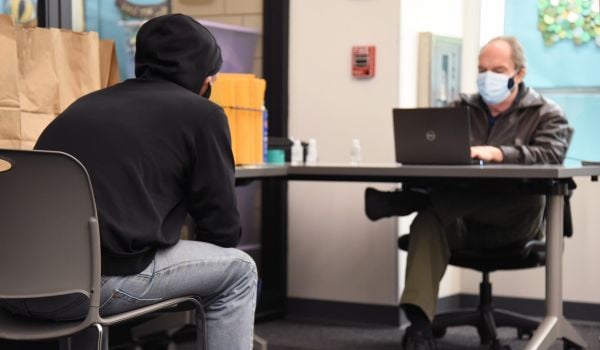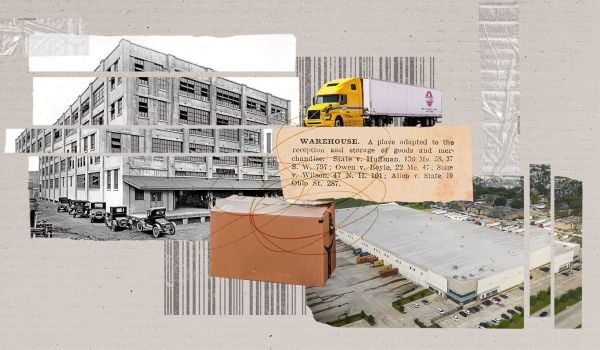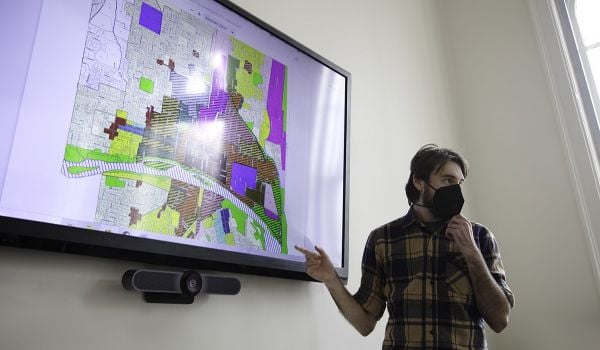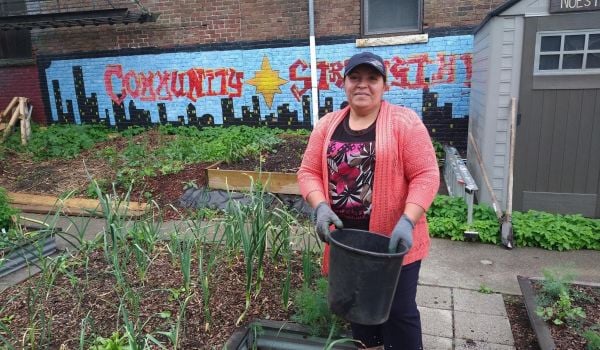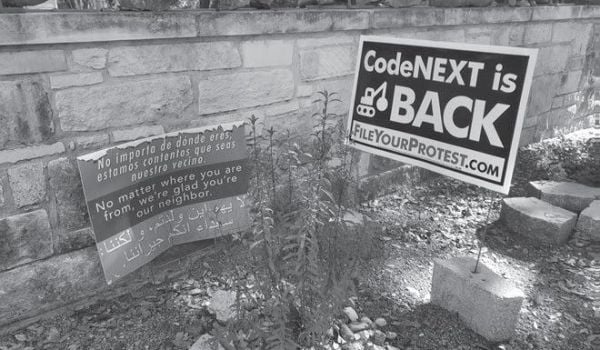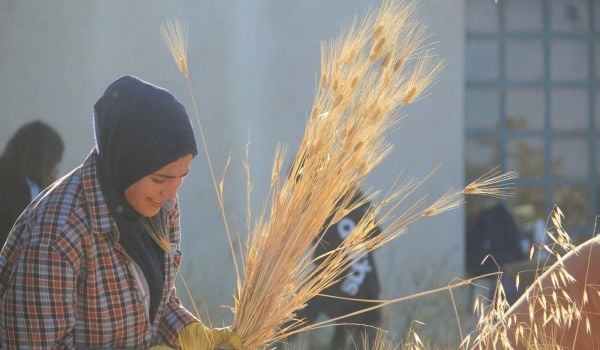St. Louis residents may soon be able to keep more chickens and rabbits in their backyards and sell eggs, honey and produce to their neighbors.
One of the zoning tweaks comes from two aldermen, Cara Spencer and Christine Ingrassia, in the form of a bill introduced Friday. Currently, residents are only allowed to have four pets, including dogs and cats; the change would allow them to keep up to eight chickens or rabbits depending on the size of their property. A memorandum policy also being considered would allow the direct sale of certain foods from the property where they’re produced.
“We have neighborhoods that don’t have access to healthy food options. We have a lot of vacant land,” Spencer told the local Fox News station. “What we’re trying to do is encourage residents to take up a garden in their own backyard, grow their own food.”
The St. Louis Food Policy Coalition released a statement in favor of the proposals on Friday.
The group “strongly supports changing urban agriculture policies that will promote food security, increase nutritious food, and expand economic opportunities for people throughout the city,” according to the release.
As Next City has covered, zoning for urban agriculture can be a tricky endeavor, sometimes with concerns about race and gentrification at the forefront of the discussion. One example: Detroit. Last year, Amanda Kolson Hurley wrote that “although all kinds of Detroiters practice urban farming, its popularity with younger, newer, white residents has led to a wariness of white people trying to ‘save’ the city through farming and of urban agriculture sparking gentrification.”
Other challenges are more obvious — like how to keep wayward bees and chickens from escaping, particularly if neighbors don’t want them around in the first place. As Hurley wrote for Next City, Detroit officials have hammered out their code with painstaking detail, asking questions specific to an area (like St. Louis) with an excess of vacant land. “What if someone owns a large lot that’s far from other houses, but in an otherwise dense, small-lot neighborhood,” Hurley wrote. “Shouldn’t that person be allowed to raise livestock if no one else will be affected by it?”
But however tricky it is to zone for chickens, officials often conclude that food insecurity makes the endeavor worthwhile. As Marielle Dubbeling (director of the Resource Centres on Urban Agriculture and Food Insecurity) explained in a Next City interview several years ago, many cities with progressive urban agriculture policies around the world, particularly in the Global South, adopted such laws after a food shortage.
“After the 2007-2008 food crisis, we saw a new surge of attention for urban food issues, and a new realization that urban food issues are of concern to city governments, whereas often it’s a ministry of agriculture that deals with food security at the national level,” she said. “After 2008, and the food riots, cities again became aware of the importance of looking at the issue, of the fact that city government should take responsibility in responding to the issue.”
According to the Riverfront Times, the new regulations for St. Louis “are part of a broader effort to encourage urban farming” in the city.

Rachel Dovey is an award-winning freelance writer and former USC Annenberg fellow living at the northern tip of California’s Bay Area. She writes about infrastructure, water and climate change and has been published by Bust, Wired, Paste, SF Weekly, the East Bay Express and the North Bay Bohemian
Follow Rachel .(JavaScript must be enabled to view this email address)




